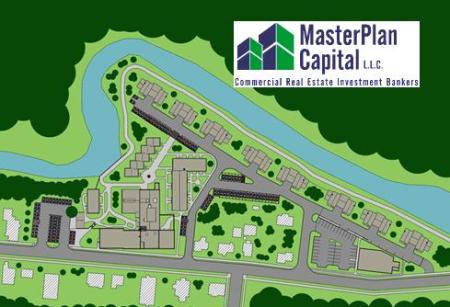Hedge funds and other private lenders do make commercial mortgage loans. The key to securing a loan approval is knowing what these unique lenders are looking for. This interesting and informative article by the President of MasterPlan Capital LLC gives commercial real estate investors 4 keys to getting funded.
Private Commercial Mortgage Loans – 4 Things Hedge Funds Require Before Approving a Loan
Hedge funds, mortgage pools, private equity firms and even wealthy individual investors all make private commercial mortgage loans against income producing real estate. While these loans are not inexpensive, they can be a valuable resource to a property owner or commercial real estate investor who needs to close a deal fast or has credit or documentation issues.
Private lenders can close loans fast and with much less bureaucratic red tape and paperwork than institutions require. Securing a private loan can sometimes be the difference between making a huge profit and losing large amounts of money.
Almost all successful real estate investors have at least one reliable source of short-term private capital available to them so they can jump on opportunities when they pop-up or get them out of trouble when cash becomes tight. The key to getting a loan from a hedge fund or other private commercial mortgage lender, is knowing exactly what these savvy investors look for in a deal.
When evaluating a loan application for private funding there are several key factors that hedge fund managers, private equity executives and other lenders look for before they agree to fund a deal.
- Exit Strategy
Private commercial mortgage lenders are, first and foremost, opportunistic investors. Before they will even consider getting into a deal they will demand to know how they are going to be able to get out. A borrower’s exit strategy must be well thought out and must be realistic. Be prepared to demonstrate the viability of the exit. If you are planning on refinancing into a permanent, conventional loan it will help to have lenders already lined up. If you are planning to sell the deal, you will need to have a well researched marketing plan. To get a loan closed, it is imperative that you prove to the lender that they will get their money back, with interest and on time.
- Equity
Hedge funds do not exist to make you money; they exist to make themselves money. Loan-to-value (LTV) ratios in the private money industry are much lower than you will find in institutional lending. The best you can expect from a private lender is 65% LTV, and that is only for properties with sufficient cash-flow.  <For loans on underperforming assets LTV ratios will be around 50%-60%. Protective equity must be present or private lenders will simply not be interested. Attempting to talk a private lender into relaxing their LTV requirements is a fool’s errand.
<For loans on underperforming assets LTV ratios will be around 50%-60%. Protective equity must be present or private lenders will simply not be interested. Attempting to talk a private lender into relaxing their LTV requirements is a fool’s errand.
Further, it is important to note that private lenders base their valuations on their own assessment of what a building is worth. They are not required to accept or rely on any third party opinions or appraisals. The guy with the check book is the guy who gets to assign value, borrowers can take-it or leave it.
- Cash in the Deal
The days of 100% financing (or anything close to it) are long over. No responsible private lender will do business with a sponsor who does not have a substantial hard equity (cash) investment in the deal.
Most private mortgage originators today will look for borrowers and sponsors to have at least a 20% cash stake in any deal they fund and will never agree to be the sole financial contributor. They will sometimes allow a reasonable second mortgage but won’t allow borrowing to account for more than 80% of a deal’s capitalization.
Don’t ask a hedge fund for a loan when you are really looking for a well heeled partner.
- Experience
Hedge fund managers and executives at private lending firms are real estate finance professionals and will only work with other professionals. They are in business to make money not to give anyone a shot at the big-time. Investors, developers and deal sponsors will need to be able to demonstrate a track record of success in commercial real estate if they expect to get a loan approval.
Entrepreneurs with less than the requisite experience level, but with desire, ambition and a great deal, are advised to partner with a proven commercial real estate pro before submitting a loan proposal to a hedge fund.
Private lenders can be a very valuable capital resource for real estate investors, but their lending standards are fairly strict and they are not prone to deviate from their protocols.
The key to doing business with these unique lenders is to know in advance what they are looking for and to structure your deal to meet their criteria. Bring them deals they already want; don’t waste your time and effort trying to sell them a deal they are not inclined to accept.
About the Author: The author, Glenn Fydenkevez, is President of MasterPlan Capital LLC, a privately held commercial real estate investment banking firm. About MasterPlan Capital: MasterPlan offers private and institutionally funded commercial mortgage loans, credit tenant lease financing, equity financing and asset management services to property owners and investors in the lower 48 states. Borrowers can apply on-line using the firm’s simple, 1 page commercial mortgage application and will receive prompt, professional service.
Article Source: http://EzineArticles.com/?expert=Glenn_Fydenkevez
http://EzineArticles.com/?Private-Commercial-Mortgage-Loans—4-Things-Hedge-Funds-Require-Before-Approving-a-Loan&id=6056108

